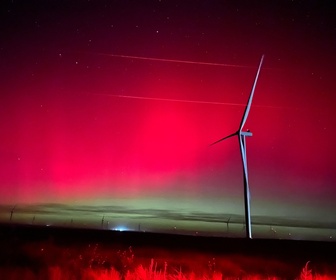Small-scale, grid-connected energy storage solutions – or “community batteries” – can have a viable business case, supporting the ongoing growth of decentralised energy generation resources. This is one of the key findings of a feasibility study published by DNV GL, based on work by an industry-wide consortium that includes energy storage firm Alfen and flexibility aggregator Peeeks.
The study finds that – given current costs for lithium-ion battery technology and grid expansion projects – community storage can be both economically and socially viable. Furthermore, it outlines a decision-making framework to help grid operators and other stakeholders identify and optimise business models and revenue streams for community storage in any market.
Decentralised energy sources such as rooftop solar panels or individual wind turbines are an important part of the transition to a more sustainable energy future. But such resources put extra strain on the local electricity distribution infrastructure, which must be prepared to handle any peaks in generation output. Distribution network operators (DNOs) can expand the capacity of their network with additional underground cables, but this takes a lot of time and money. An alternative is to install batteries close to decentralised resources to store any excess energy generated and feed it into the grid when demand exceeds supply.
For DNOs, multi-stakeholder community storage solutions are a much cheaper alternative to expanding the grid. Moreover, they can be installed and fully operational much faster than new grid capacity and with significantly less disturbance to the local environment and population. For parties interested in installing and operating community storage services, the study shows that long-term contracts are a commercially interesting option, potentially making it easier to find funding for new projects. Meanwhile, end users – whether residential, commercial or industrial – can be confident of a reliable and affordable supply of sustainable electricity.
Decentralised energy sources such as rooftop solar panels or individual wind turbines are an important part of the transition to a more sustainable energy future. But such resources put extra strain on the local electricity distribution infrastructure, which must be prepared to handle any peaks in generation output. Distribution network operators (DNOs) can expand the capacity of their network with additional underground cables, but this takes a lot of time and money. An alternative is to install batteries close to decentralised resources to store any excess energy generated and feed it into the grid when demand exceeds supply.
For DNOs, multi-stakeholder community storage solutions are a much cheaper alternative to expanding the grid. Moreover, they can be installed and fully operational much faster than new grid capacity and with significantly less disturbance to the local environment and population. For parties interested in installing and operating community storage services, the study shows that long-term contracts are a commercially interesting option, potentially making it easier to find funding for new projects. Meanwhile, end users – whether residential, commercial or industrial – can be confident of a reliable and affordable supply of sustainable electricity.









